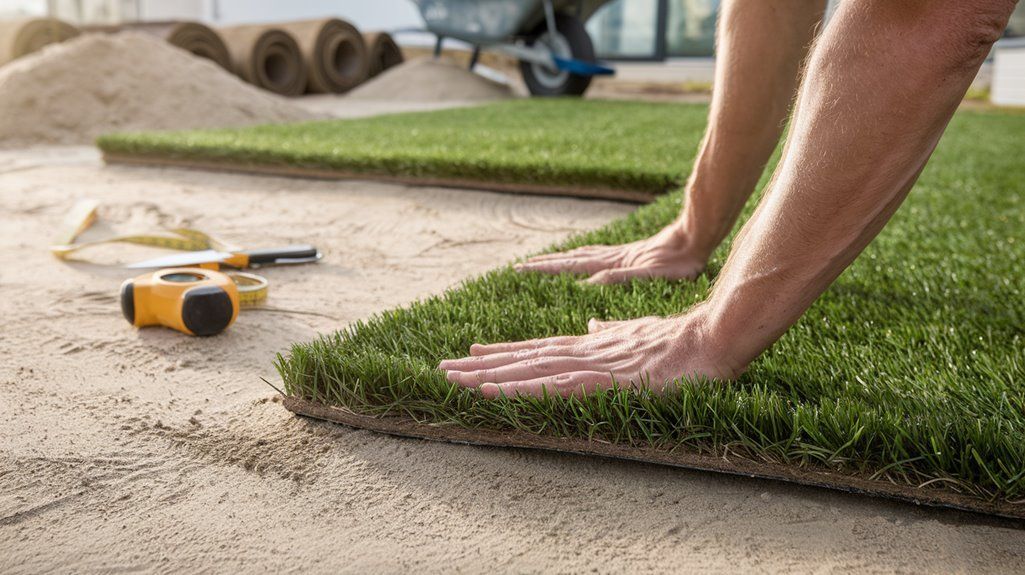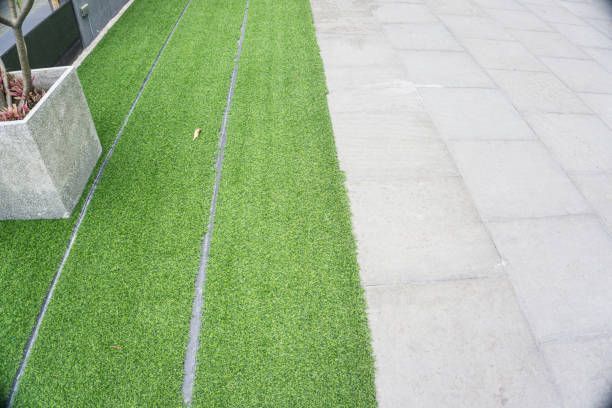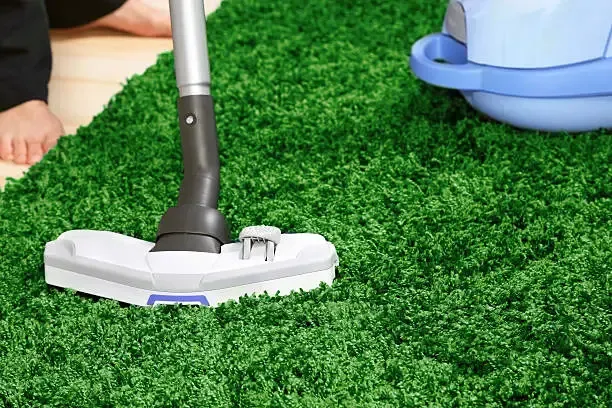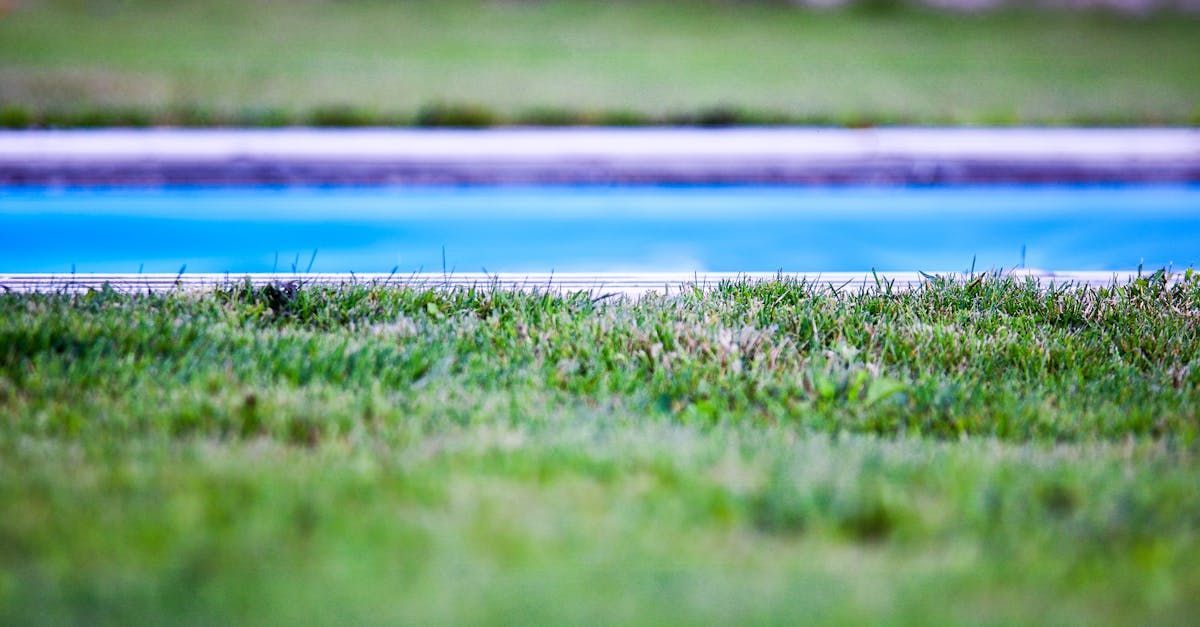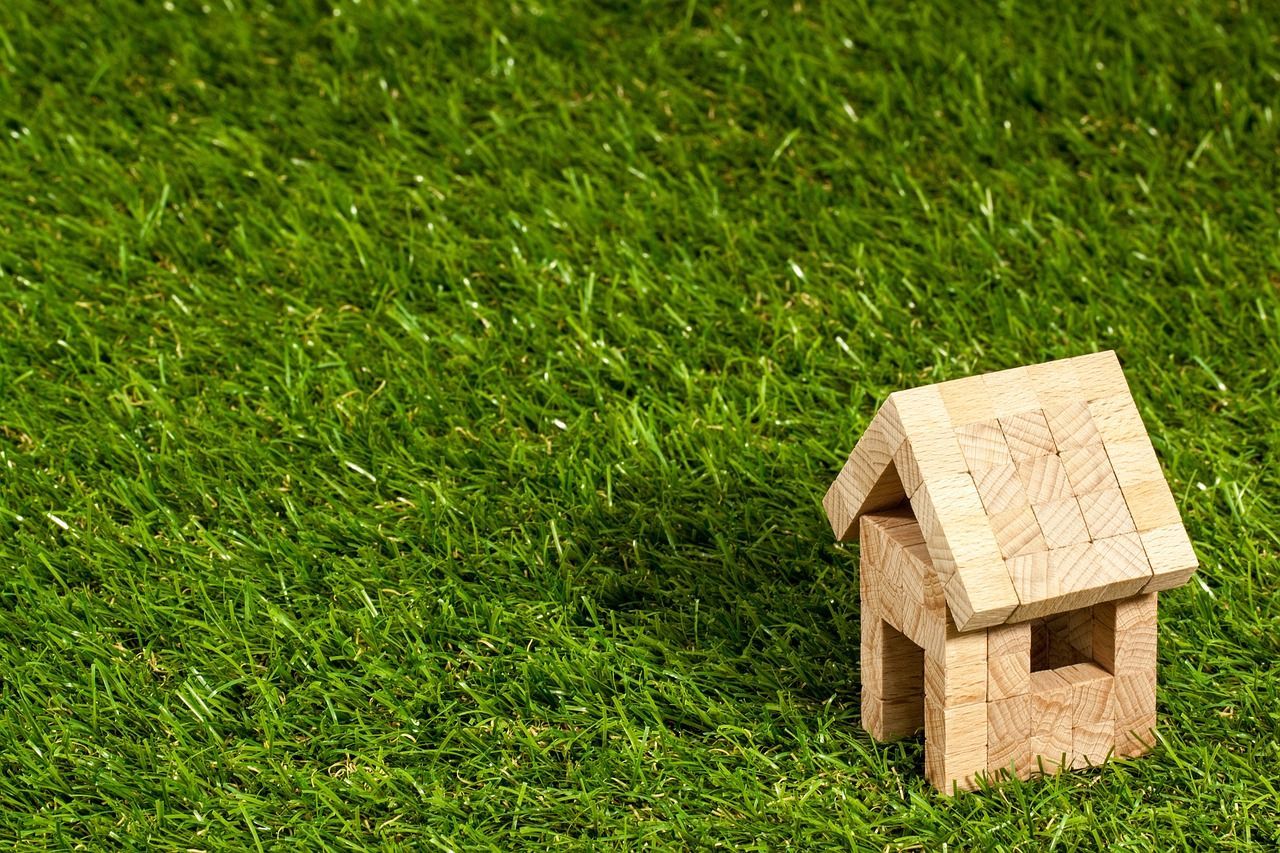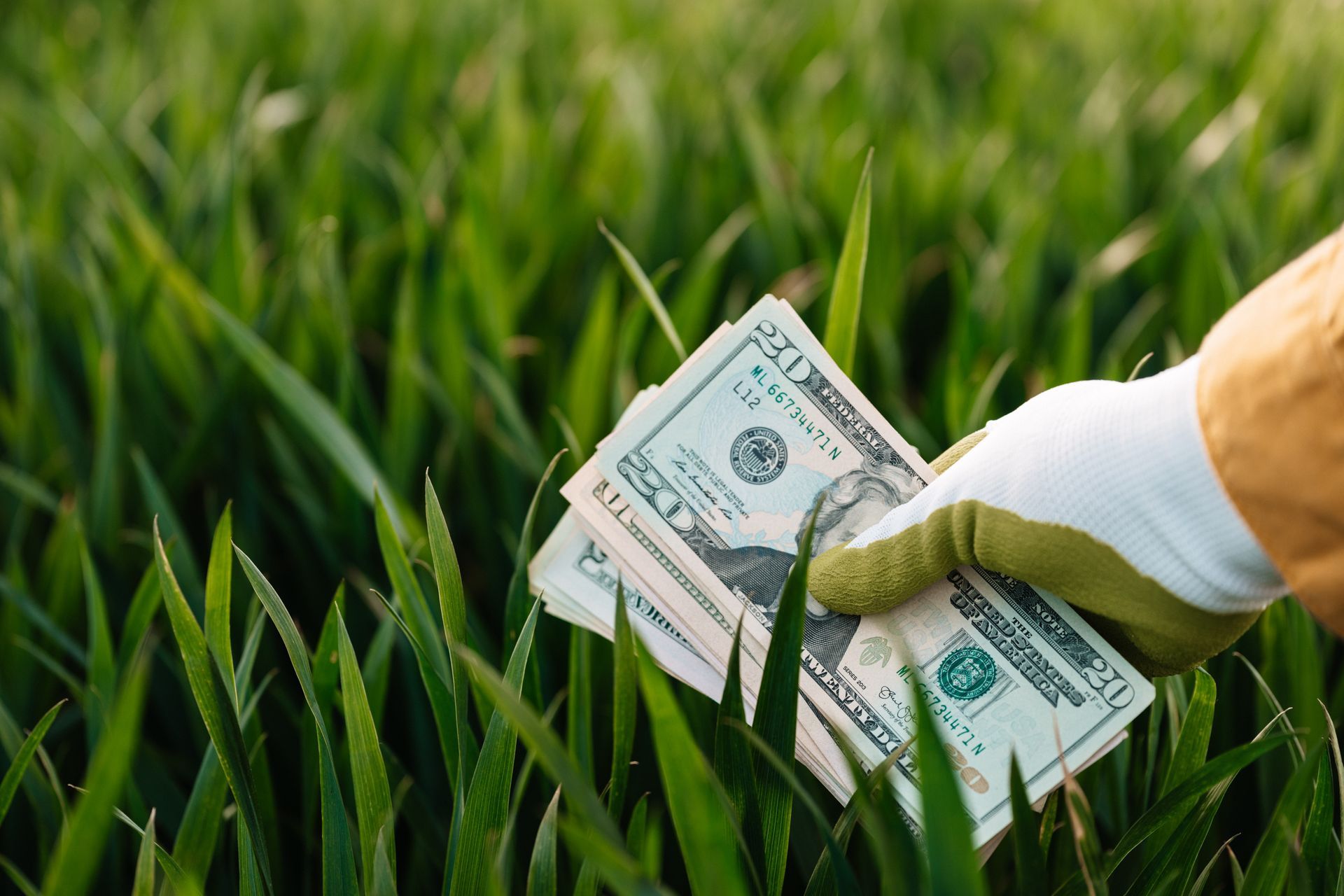Ways to Maximize Your Turf for Spring
Spring, the season of renewal, rebirth, and...lawn maintenance? That's right, folks. It's time to get your turf in top shape for the warmer months ahead. But fear not! With a little bit of elbow grease (and maybe a cold beer or two), you can transform your lackluster lawn into a verdant paradise that will be the envy of the neighborhood. So put down that TV remote, grab your gardening gloves, and get ready to learn some surefire ways to maximize your turf for spring.
With just a few simple steps, you can turn your drab, winter-weary lawn into a lush, green carpet that beckons bare feet and picnics. Not only will a healthy lawn enhance your home's curb appeal, but it will also help to improve the overall health of your community by filtering pollutants and providing oxygen. So let's dive into some practical tips and tricks that will have you feeling like a lawn care pro in no time. Get ready to enjoy a season of backyard bliss.
Are you tired of regular mowing and want a better solution without losing the lush green look? Here comes an
artificial turf backyard. Say goodbye to mowing or other time-consuming tasks.
Assess the Current Condition of Your Lawn
Once winter days are gone and the snow has melted away, it's time to take a closer look at the condition of your lawn. Take a walk around your lawn and observe any bare or thin areas, weeds, pests, or other issues that need addressing. Identifying these problems early on can save you time, money, and frustration in the long run.
Start by checking the soil for compaction or poor drainage, which can lead to root damage and poor growth. Look for any signs of disease or fungal growth, such as discoloration, spotting, or powdery mildew. Pay close attention to bare spots, they might indicate soil erosion or pest damage.
Don't forget to take note of any environmental factors that may be affecting your lawn, such as excessive shade or sun exposure, high foot traffic, or nearby construction.
Don't be discouraged if you find some problem areas - this is the perfect opportunity to make improvements and get your lawn looking its best. Thoroughly assessing the current condition of your lawn will allow you to set things straight, and you'll be better equipped to address any issues and make the necessary adjustments for optimal health and growth.
Aerate Your Lawn for Optimal Health
While there is no denying the beauty of a lush, green lawn, achieving and maintaining it can sometimes be a challenge. One key step towards achieving optimal lawn health is to aerate your lawn. Over time, soil can become compacted, preventing proper absorption of nutrients and water by the roots. It involves perforating the soil with small holes to allow air, water, and nutrients to penetrate the grass roots more easily.
It is an easy and effective way to promote healthy root growth, ultimately resulting in a lush and green lawn. It's especially important if you notice bare or thin spots on your lawn, as these areas may be suffering from soil compaction.
Aerating isn’t something of a complex matter, it is a simple and straightforward process that can be done on your own or with the help of a professional lawn care service. There are a few different ways to aerate your lawn, including using a manual aerator or renting a power aerator from a hardware store. Some lawn care services may also offer aerating as part of their package.
For best results, it's recommended to aerate in the spring or fall, when the grass is actively growing. Be sure to water your lawn a day or two before aerating, as this will make it easier to penetrate the soil.
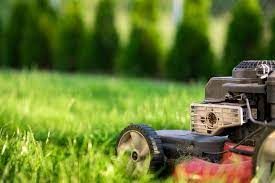
Fertilize for Strong Growth and Color
Achieving strong growth and the vibrant color becomes quite easy when proper fertilization takes place. Fertilizers provide essential nutrients like nitrogen, phosphorus, and potassium that promote healthy root growth, improve disease resistance, and enhance overall appearance.
But not just selecting random fertilizers, you need the right one for your lawn - depending on factors like soil type, grass type, and climate, you have to decide. For most lawns, slow-release fertilizer with a balanced ratio of nutrients is a good choice. These fertilizers release nutrients gradually over time, providing a steady supply of nutrients to the grassroots.
The quantity you apply and the timing are also crucial. Over-fertilizing can damage the lawn and eventually cause excessive growth, while under-fertilizing can result in weak and lackluster grass.
The quantity you apply and the timing are also crucial. Over-fertilizing can damage the lawn and eventually cause excessive growth, while under-fertilizing can result in weak and lackluster grass.
Water Your Lawn Properly to Avoid Drought Stress
Everyone is well aware of the fact that watering is a must to keep the turf in super shape. However, simply watering your lawn isn't enough. You need to make sure you're doing it properly to avoid drought stress and ensure your lawn stays healthy and green.
One key factor in proper lawn watering is timing. Watering your lawn in the early morning hours allows the grass to absorb moisture before the heat of the day sets in. This helps prevent water waste through evaporation, as well as reduces the risk of fungal growth and other lawn diseases.
In addition, grass types vary and watering needs to be adjusted according to it. You must schedule this task to meet the needs of your specific grass type. Let’s say, your lawn consists of warm-season grass, so typically there is less water to be given to this type than its counterparts.
And sandy soil, for example, will require more frequent watering than clay soil, as it doesn't retain moisture as well.
How are you going to water your turf? Sprinklers are a popular choice, but they waste a lot of water through evaporation and runoff. Consider using a drip irrigation system or a soaker hose, which delivers water directly to the roots and minimizes waste.
Don’t forget about water restrictions or drought conditions in your area. If there are any limitations to such activities, you may need to adjust your lawn care routine and prioritize the areas of your lawn that need the most attention.
Mow Your Lawn at the Right Height
Mowing is a necessary chore, but did you know that mowing at the right height can actually benefit your lawn's health and appearance? That's true - mowing at the proper height is a key component of a successful lawn care routine.
In general, it's best to mow cool-season grasses like fescue and Kentucky bluegrass to a height of 2.5 to 3.5 inches, while warm-season grasses like Bermuda and zoysia should be mowed to a height of 1 to 2 inches.
When you mow too low, you can damage the grass's crown and limit its ability to grow deep roots. On the other hand, if you go high, there is a risk of leaving behind long clippings that can smother the grass and block out sunlight.
Keep your mower blades sharp, as dull blades can tear the grass instead of cutting it cleanly. Brown, ragged edges on your grass blades look unsightly but can also make your lawn more susceptible to disease.
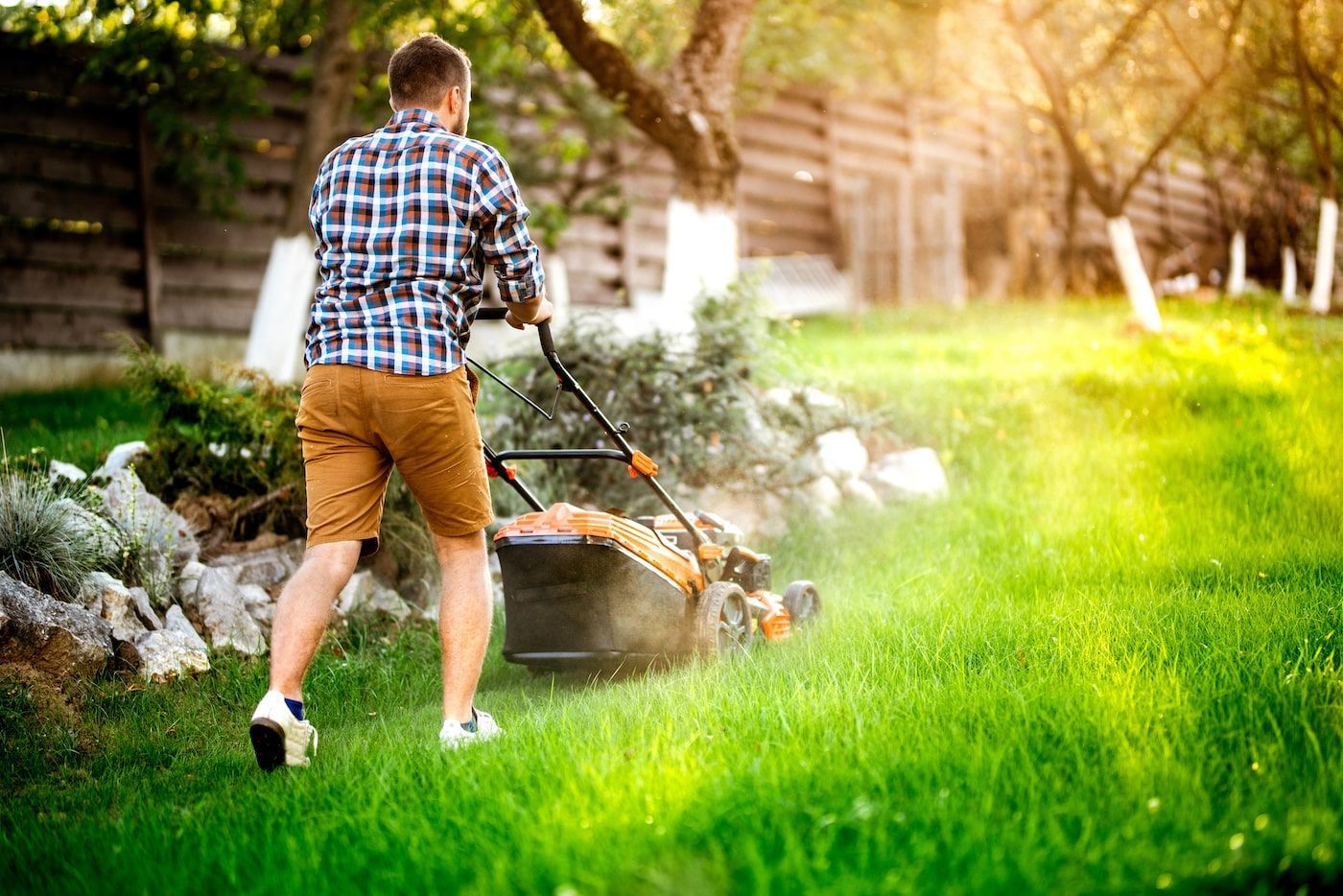
Enjoy Your Beautiful Lawn All Season Long
After putting in the hard work to get your lawn looking its best, it's time to sit back and enjoy the fruits of your labor! But how can you make sure your lawn stays beautiful all season long? Continue following a regular lawn care routine. Don't slack off on watering, fertilizing, and mowing just because your lawn looks good - consistency is key to maintaining a healthy and vibrant lawn.
Another tip - be mindful of foot traffic on your lawn. While it can be tempting to play a game of frisbee or host a backyard barbecue, heavy foot traffic can damage the grass and create bare spots. Consider setting up designated areas for activities or using a temporary lawn protection system to keep your grass healthy and intact. Many people simply prefer having artificial turf grass; it is cost-effective and requires little to no maintenance. Comprised of a wide range, it will serve as a great alternative to the former - artificial turf for dogs, kids, and more. Commercial or residential applications - this is a game changer for all the spaces.
As long as you maintain your grass regularly, ensuring you clean up after spills, pets and are treating weeds prior to installing your fake grass, there will be no problems with its appearance, texture or smell. (1)
Maintaining a beautiful lawn all season long requires a combination of diligence, care, and appreciation. Whether you're enjoying a picnic on a sunny day or simply taking a stroll around your yard, taking a moment to appreciate the beauty of nature can be a great way to destress and relax.
Considering
artificial turf putting green installation? Well, we understand sometimes it is seldom to keep up with the components involved in natural turf. Give us a call now and be on your way to enjoying artificial turf for years to come.
About the author
Kathy Leavell
Kathy Leavell is the founder and owner of Synthetic Turf Treasure Coast, a leading provider of synthetic grass solutions for residential and commercial properties in Florida. With over a decade of experience in the industry, Kathy has become a recognized expert in synthetic turf installation, maintenance, and repair. Under her leadership, Synthetic Turf Treasure Coast has earned a reputation for exceptional customer service and high-quality workmanship.
Prior to starting her own business, Kathy worked in sales and marketing roles at several major synthetic turf manufacturers.

